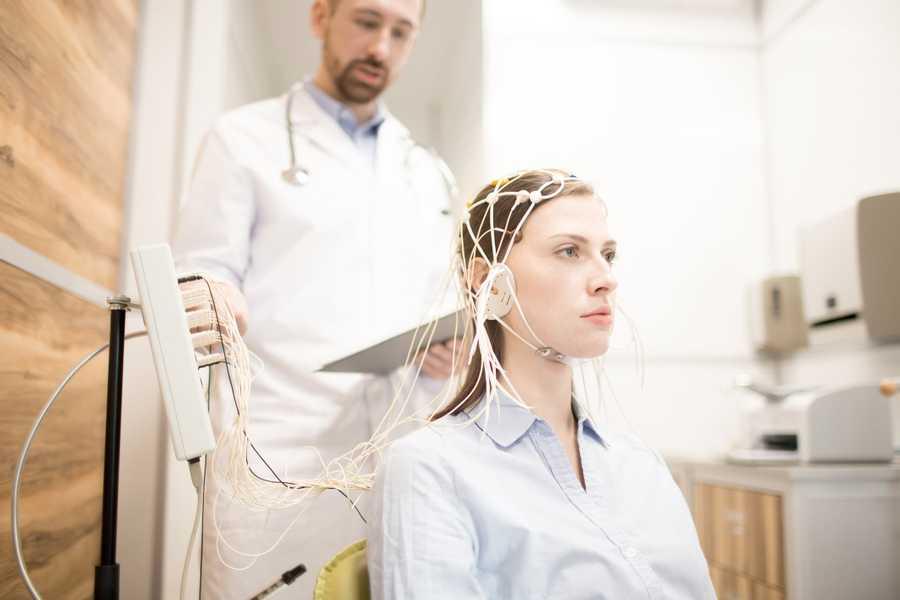Why your brain is not a computer | Neuroscience | The Guardian
theguardian.com
10 ideas
·5.05K reads
21
2
Learn more about health with this collection
How to handle conflicts
How to identify and regulate emotions
How to develop self-awareness
Neuroscientists Working On The Brain
Scientists have been carrying out experiments and tests on the brain to understand its many functions and also to manipulate brain activity. New, increasingly detailed maps of the brain are now being drawn out.
Breakthroughs in technology let us change the brain’s structure, or plug it to external components, like a paralysed man controlling a robotic arm by simply commanding the brain.
100
2K reads
A Better Definition Of The Brain
We have been taught that our brain is just a biological computer. It is actually an integrated and highly evolved structure that is shape-shifting and extremely adaptive towards all kinds of stimulation.
New discoveries provide us with a glimpse of the brain’s previously unknown powers, like reading minds or detecting criminal behaviour. Despite new technologies and breakthroughs, our understanding of the brain is still minuscule and maybe in the wrong direction.
70
497 reads
The Brain Is An Enigma
- Modern science does not yet have an official framework regarding the brain being able to produce consciousness.
- Scientists are still on the lookout for a unified, acceptable theory of brain function in any living species on earth, even worms.
- The brain is not a singular entity but is both integrated and composite at the same time.
- Scientists do not yet have a precise definition of what the brain really is, as it does not fit any physical analogy.
- Even cutting-edge advancements in science and technology: Quantum supremacy, Nanotech or Blockchain, cannot fully explain what the brain can do.
73
425 reads
Big Data Is Not Knowledge
Neuroscience handling big data still lacks a theoretical framework or even a basic principle that convert brain data into basic knowledge and understanding. Vast amounts of information end up being counterproductive by injecting uncertainty into existing global understanding while adding new levels of complexity.
A creative application of the new and emerging technologies is required, along with further advances in data analysis methods.
68
389 reads
The Brain: Linear Vs Neural
By considering the brain as a computer, we assume that it functions as a series of linear steps. However, the brain is a visually breathtaking three-dimensional network of complex neural nodes that are interconnected both internally and externally.
It is not a simple input-output response mechanism that processes data and represents information, but an active organ that constructs information.
72
323 reads
Explaining The Brain: Strong Emergence
Certain phenomena cannot be explained by a single activity, where individual components work in tandem with each other and it is hard to pinpoint where the process starts or ends. The workings of such a phenomenon, known as Strong Emergence, cannot be categorized or bracketed in a single explanation.
Strong emergence is one of the few ways a brain can be explained. When we read a book, the page is made up of atoms, and so are we, but labelling it as simply an interaction of atoms cannot explain our ability to read, or the book’s ability to shape our mind into higher-level structures. This strong emergence does not take into account the complexities of understanding, language and how millions of neurons interact.
73
255 reads
Explaining The Brain: Weak Emergence
Certain activities in nature, such as how a group of tiny fish move in response to an attack from a bigger fish, are based on the behaviour of individuals who influence their entire group.
These activities are known as Weak Emergence, and are commonly observed in many behavioural and seasonal studies by scientists.
69
243 reads
When Machines Become Conscious
- As technology has completely taken over our lives, some believe that the current advancements like Neurolink or A.I. can eventually lead to singularity, when machines become conscious.
- This hypothesis ignores how consciousness works and believes that the mind is a product of matter, just like any other organ.
- The scale, vastness and complexity of the brain is still thousands of years ahead of our most powerful supercomputers.
- The brain as a computer argument can at best be taken as a metaphor.
70
249 reads
The Mind As An Operating System
Some researchers envision the brain as an operating system that is ‘installed’ on neural hardware. This naive viewpoint assumes that brains and minds are identical in all living creatures, and can be separated into neat categories like hardware and software.
Even to simulate such a hypothesis requires a kind of deep understanding that we lack.
Holding a single thought is a miracle in itself, and a neural network that makes this happen cannot be mimicked, at least until the far, far future.
70
263 reads
Reverse-Engineering The Brain
Even understanding the simplest parts of the brain is beyond our reach.
Recent experiments trying to reverse-engineer a computer chip from the 70s(those used to play Atari and Nintendo games) showed that one cannot even detect the hierarchy of how the information is processed inside, despite having a clear understanding of how chips work in a computer.
This provides a glimpse of the vastness of the brain and how little we know about it.
70
411 reads
CURATED BY
More like this
Read & Learn
20x Faster
without
deepstash
with
deepstash
with
deepstash
Access to 200,000+ ideas
—
Access to the mobile app
—
Unlimited idea saving & library
—
—
Unlimited history
—
—
Unlimited listening to ideas
—
—
Downloading & offline access
—
—
Personalized recommendations
—
—
Supercharge your mind with one idea per day
Enter your email and spend 1 minute every day to learn something new.
I agree to receive email updates

